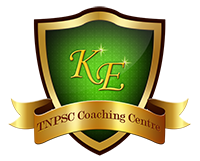
TNPSC Group 4 Syllabus
Tamil Nadu Public Service (TNPSC) has released the exam pattern for the recruitment of TNPSC Group 4 of posts that come under the cadre. In the TNPSC Group 4, different posts include Village Administrative Officer, Typist, Steno-Typist, Junior Assistant, etc. Candidates who want to apply for these posts must be well-versed with the TNPSC Group 4 Syllabus and Exam pattern 2023.
The TNPSC Group 4 is a 300 marks examination,
Questions in this exam would be asked from General Studies, Tamil and Mental Ability.
TNPSC Group 4 Exam Pattern
The TNPSC Group 4 Exam is an offline mode examination. The aspirants have to answer 300 marks of multiple-choice questions. The detailed TNPSC Group 4 syllabus of the exam has been discussed elaborately:
General Studies
General English/General Tamil
General Mental Ability and Aptitude test
TNPSC Group 4 Syllabus Unit I
It is the most common section of all the exams across the country. The questions of this unit are compulsory to answer for the candidates playing an important role in the final merit list of the TNPSC Group 4 exam
TNPSC Group 4 Syllabus Unit II
Current Events
Election-related issues, public awareness, and general administration, the political system and parties in India, Welfare-focused government programmes, their effectiveness, current events calendar-national states profiles, National emblems, games & sports, prominent people and locations in the news, Honors & Awards, Books and authors, as well as India’s neighbours.
TNPSC Group 4 Syllabus Unit III
Geography Topics
Solar system, monsoon, precipitation, weather, climate, rivers in India, natural resources such as soil and minerals, and water resources Wildlife in the forest and agricultural patterns communication, as well as surface transportation, population density and distribution in social geography Disaster management for natural disasters.
TNPSC Group 4 Syllabus Unit IV
History and Culture of India & Tamil Nadu
Indus valley civilization, Growth of rationalists, Dravidian movement in TN, Age of Vijayanagaram and the Bahmanis, Guptas, Delhi Sultans, Mughals and Marathas, South Indian History, India since independence – Characteristics of Indian culture, Culture and Heritage of Tamil people, Unity in diversity – race, colour, language, custom-India-as secular state, Political parties and populist schemes.
TNPSC Group 4 Syllabus Unit V
Indian Polity
The preamble to the Constitution, Right to Information, Empowerment of Women, Local Government, Panchayat Raj, Judiciary in India, Rule of Law/Due process of Law, Elections, Union Legislature, State Executive, State Legislature, Assembly, Citizenship, Salient Features of Constitution, Corruption in Public Life and Anti-Corruption Measures, Human Rights Charter, Parliament, Fundamental Rights, Fundamental Duties, Official Language and Schedule – VIII, CVC, Lok-Adalats, Ombudsman, CAG, Consumer Protection Forms.
TNPSC Group 4 Syllabus Unit VI
Indian Economy
The economy of India, Natural resources, agricultural reforms, science and technology, and industrial development An evaluation of India’s five-year plan programmes focused on rural welfare, Sri Lanka Issues in the economy and social sector, including poverty, unemployment, education, and health
TNPSC Group 4 Syllabus Unit VII
Indian National Movement, Renaissance in India, Freedom Struggle in India and emergence of major national leaders-Gandhi, Nehru, Tagore, Tamil Nadu and freedom struggle movement – Rajaji, VOC, Periyar, Bharathiar & others.
TNPSC Group 4 Syllabus Quantitative Aptitude
Data conversion from information, data gathering, compilation, and presentation, tables, graphs, and diagrams, as well as data analysis and interpretation Simplification, logical reasoning, visual reasoning, ratio and proportion, simple interest, time, and work, as well as alpha numeric reasoning, highest common factor (HCF) and lowest common multiple (LCM), Dice, volume, compound interest areas, number series, and puzzles.
TNPSC Group 4 Syllabus English
The candidates will have to answer 100 questions in English.
Part A: Grammar
Phrases and Words, Antonyms and Synonyms, Noun, Verb, Adjectives and Adverbs, Comprehension, Prefixes, Suffixes, Prepositions, Question Tags, Tenses, Voices, Infinitives, Gerunds, Participles, Subjects, Verbs, Objects, Homophones, Articles, Prepositions, Verb, Noun, Adjective and Adverb, Simple, Compound, Complex Sentences, Noun.
Part B: Literature
The figure of Speech in Poems, Appreciation Questions from, Poetry, Poems – Important Lines, Biography, Shakespeare, Oscar Wilde, Dr. Karl Paulnac, Motivational Essays, Description of Places, British English vs. American English.
Part C: Authors and their Literary Works
Match Poems with Poets, Nationality of Story, Author of Short Story, Autobiography/ Biography, Nationality of Poets, Characters, Quotes, Important Lines from Indian Authors, Famous lines, characters, quotes from Julius Caesar and The Merchant of Venice, Folk Art: Country and/or State, About Poets, About Dramatist, Themes in Literary Works, Nature centred Literary works and Global issue Environment and Conservation
